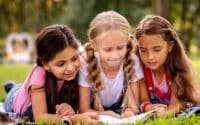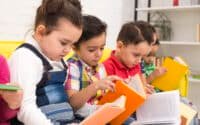Exploring Early Childhood Care and Education Programs
Introduction:
Understanding how important early childhood education is is a key part of building a strong base for a child’s future growth. The Early Childhood Care and Education Course is an important part of making sure that young children have a safe place to learn, grow, and do well. There are many programmes for kids in their formative years that meet all of their needs. These programs help them grow in all areas and get ready for success in school and in social situations.
Why Choose Early Childhood Care and Education Course?
People who want to work with young children can get a lot of training from the Early Childhood Care and Education Course. These courses give teachers the knowledge and skills they need to make learning fun, whether they are taking an Online Teacher Training program or going to a teacher training school. These programs are all about theories of child development, planning lessons, running a school, and building good relationships with kids and their families.
Exploring Different Types of Programs:
Preschool Programs:
For kids usually between the ages of three and five, preschool programs are meant to give them organized ways to learn. The main goal of these programs is to get kids ready for kindergarten by teaching them basic intellectual ideas, social skills, and how to be independent. Through a teacher training course, preschool teachers learn how to plan fun activities that help kids grow physically, mentally, and emotionally.
Montessori Education:
Dr. Maria Montessori came up with the ideas that are used in Montessori education. These ideas stress hands-on learning, self-directed action, and playing with others. Children can study materials at their own pace in Montessori classrooms, which are carefully set up to encourage creativity, problem-solving, and a love of learning. To do a good job with this child-centered approach, teachers get special training in Montessori methods.
Reggio Emilia Approach:
The Reggio Emilia method comes from Italy and stresses that the child should be involved in every step of their learning. With a focus on project-based learning and the arts, this way of teaching encourages students to explore, be creative, and work together. Teachers who have been trained in the Reggio Emilia philosophy learn along with the kids, writing down what they are doing and helping them make links between what they are learning and real life.
Waldorf Education:
Waldorf education, which is based on Rudolf Steiner’s ideas, stresses creativity, imagination, and growth in all areas of life. Waldorf preschools are safe places where kids can do creative tasks, listen to stories, and use their imaginations. Waldorf teachers are trained to combine academics with the arts and practical skills, and they help each child develop their own talents and hobbies.
Supporting Diversity and Inclusion:
Early childhood education programs try to be welcoming and sensitive to different cultures so that they can recognize and value the differences between children and families. Teachers get training on how to make classrooms where all kids feel welcome, accepted, and helped on their way to learning. By embracing differences, early childhood education programs help kids develop empathy, tolerance, and a feeling that they belong.
Conclusion:
Early childhood education programs are very important for making our kids’ futures better. Traditional preschool programs, alternative methods like Reggio Emilia or Montessori, or specialized teacher training courses all aim to give young children a strong foundation for learning that will last a lifetime. Early childhood educators help make the future better for everyone by knowing the different needs of children and families and using practices that are open to everyone.





